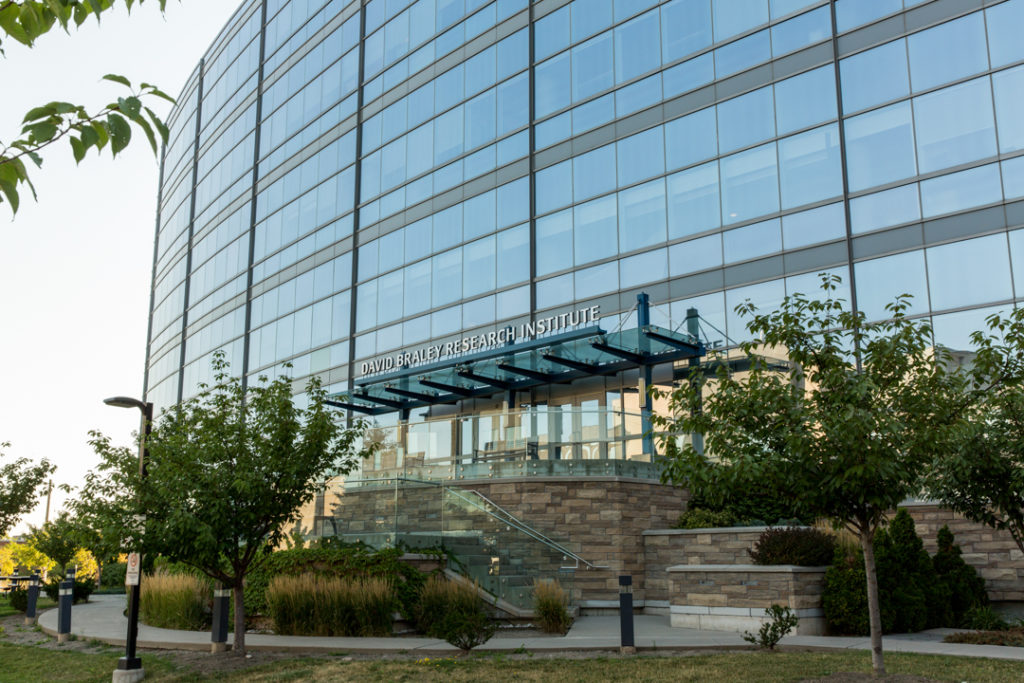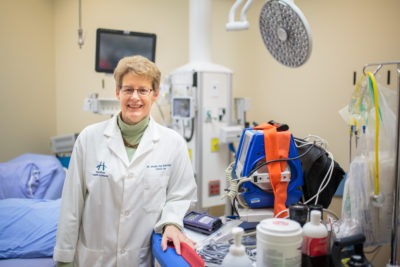
Hamilton Health Sciences holds strong as a top Canadian research hospital
Hamilton Health Sciences (HHS) has again been named among the top ten research hospitals in Canada.
In results released today, HHS ranked seventh in Canada’s Top 40 Research Hospitals. This list is considered the gold standard by research hospitals and is produced by Research Infosource Inc., an independent leading analyst of Canadian hospitals, universities, colleges and corporations. Each year, it releases results on the top 40 research hospitals in the country, based on total research spending from the previous fiscal. This ranking is based on the 2021 fiscal year.
“HHS has maintained a ranking in the top 10 for the past decade”
Rankings depend on funding

Dr. Marc Jeschke, VP, Research and Director, Burns at HHS
“HHS has maintained a ranking in the top 10 for the past decade, which identifies us as a leader in health research investment nationally and internationally.” says Dr. Marc Jeschke, HHS vice president of research and director of burns.
HHS also ranked in the top half of large hospital systems for researcher intensity. This category represents HHS researchers’ ability to attract a high level of investment. When looking at investment intensity as a percentage of total hospital spending, HHS ranks fifth.
“Like all Canadian hospitals, we face challenges with research funding as the industry shifts to more innovation and tech-based health care solutions,” says Jeschke. “Due to this, we’re in the process of developing a strategic plan to identify how we can maintain financial sustainability, while continuing to perform high quality research and increase our position within the Canadian research profile.”
Discoveries during the 2021 fiscal year
For HHS, the 2021 fiscal was from April 2020 to March 2021, which was also the first year of the COVID-19 pandemic. Below are a few highlights from the year.
HHS researchers launched a study to test virtual care and remote monitoring technology for patients recovering at home from surgery. This was in response to the pandemic as it allowed care teams to send patients home early, while still monitoring their recovery. The success of this study allowed for implementation within the hospital later into the pandemic to continue to allow patients to recover at home when hospital capacity became challenging.

Dr. Alison Fox-Robichaud, HHS critical care physician, leads Sepsis Canada.
The federal government invested $5.7 million in a new, national research network to study sepsis, led by HHS critical care physician Dr. Alison Fox-Robichaud. Sepsis Canada will track and study treatments and develop tools on how best to prevent, diagnose and manage sepsis. Unfortunately, a global health issue like sepsis only became more apparent during the pandemic, since many patients critically ill with COVID developed sepsis.
HHS researchers are exploring the long-term effects of Kawasaki disease on the heart. Kawasaki disease develops in children typically between two and five years old. It causes inflammation in the walls of blood vessels throughout the body, including the coronary arteries which supply blood to the heart, and is the leading cause of acquired heart disease in children.

Dr. Rosalyn Juergens, HHS medical oncologist, is the trial’s national chair.
The Juravinski Hospital and Cancer Centre developed a clinical trial for stage 4 lung cancer patients that discovered chemotherapy and immunotherapy drugs could be safely combined. This is now being compared to a combination of only immunotherapy drugs. The team hopes to eventually treat lung cancer more like a chronic disease, where people receive treatment over longer periods of time to suppress cancer growth.
Research in Canada
Canada’s hospital research spending flat-lined in fiscal 2021 as leading research hospitals, hospital networks and health authorities spent a total of $3.06 billion – the same as the previous year. Over half of the Top 40 Research Hospitals had a decline in research spending during the fiscal, HHS included.
Toronto’s University Health Network was the top research spender with $453.0 million of research spending, a 7.6% decrease from the previous year. This was followed by Hospital for Sick Children with $278.1 million in spending – a 1.3% decrease, then McGill University Health Centre with $196.8 million in spending – a 4.5% decrease.
“The Fiscal 2021 data are surprising and perplexing,” says Ron Freedman, CEO of Research Infosource. “Just as COVID-19 was taking hold and there was a huge focus nation-wide on research, hospital research spending was struck. Perhaps many hospitals’ all-hands-on-deck response to COVID treatment prevented them from boosting their research activities.”



